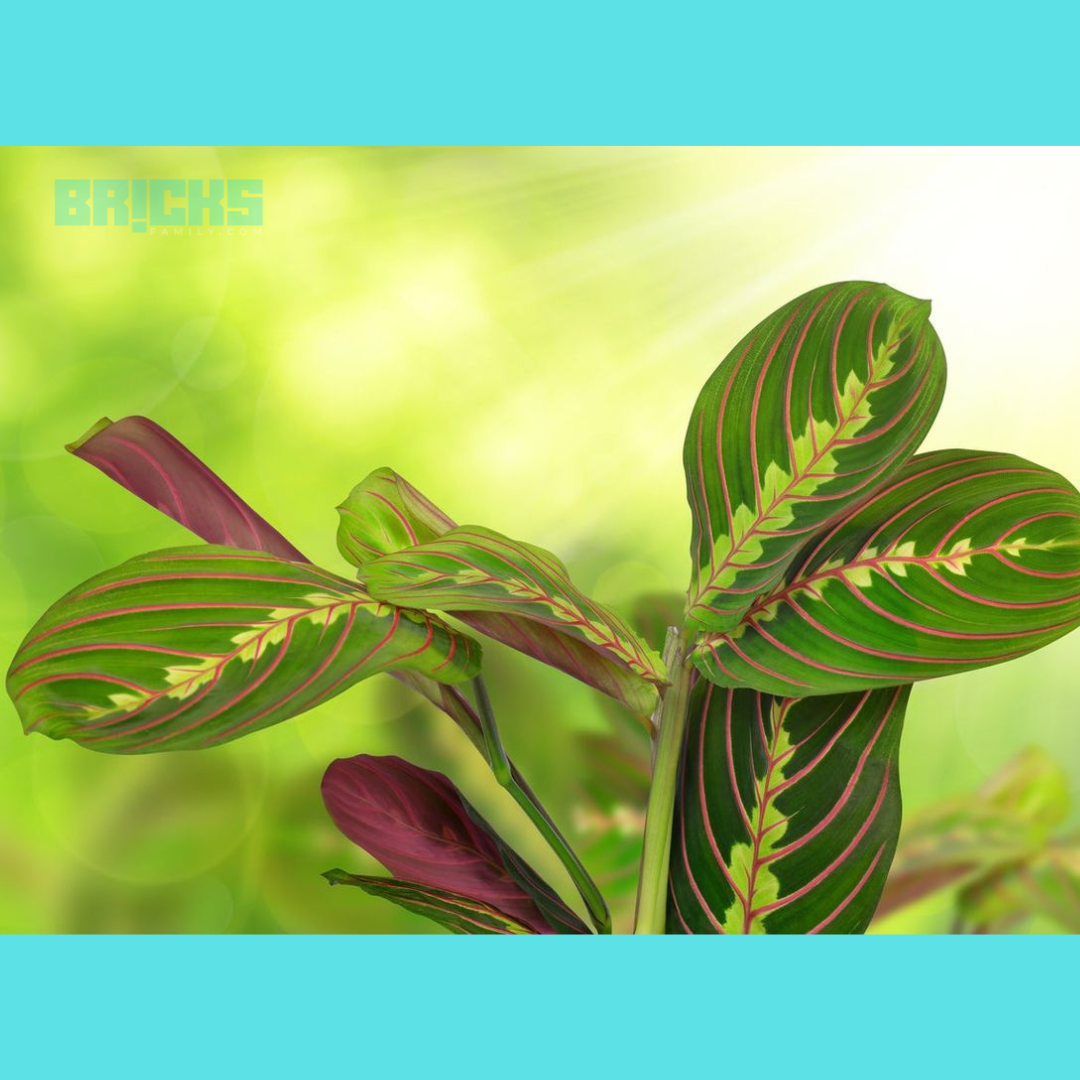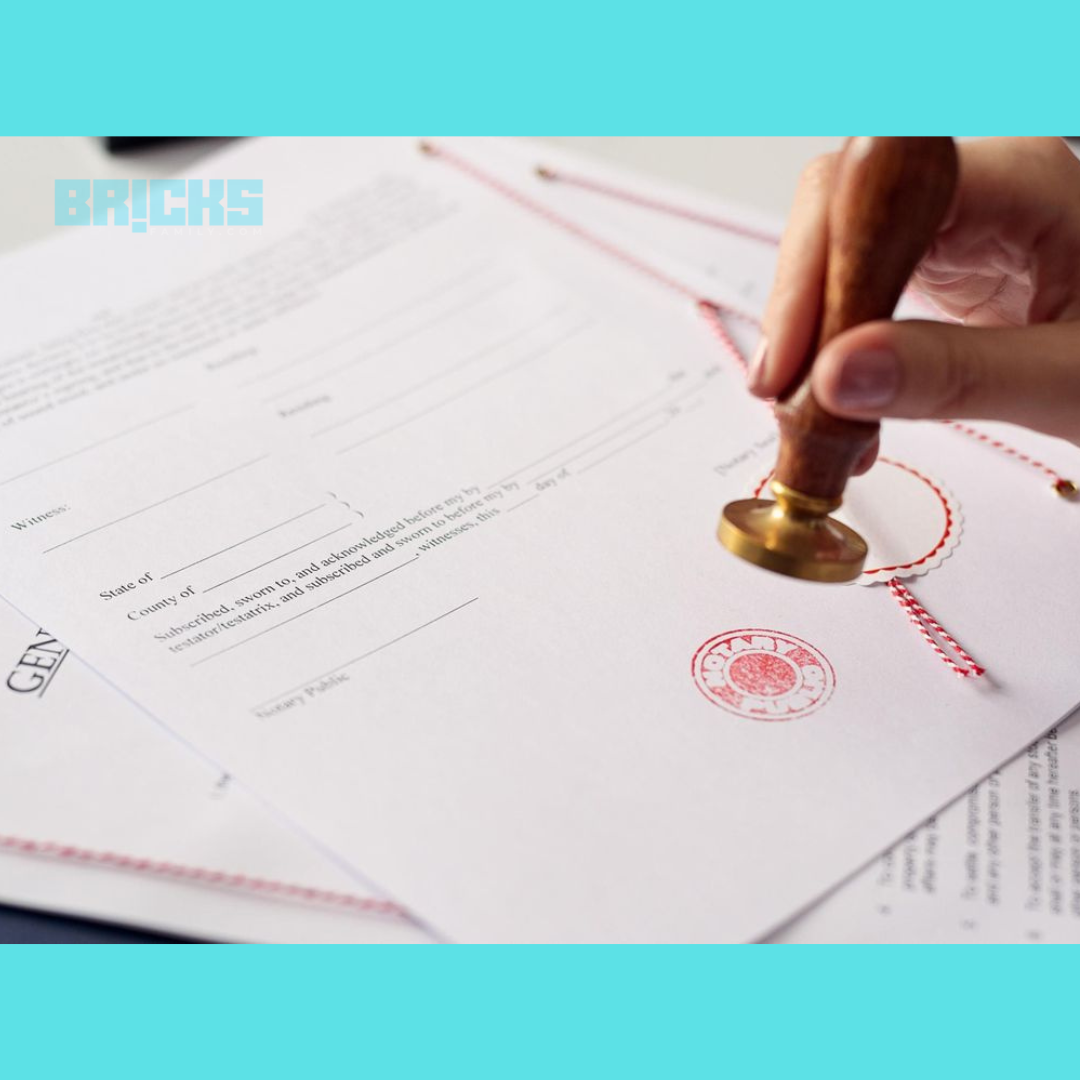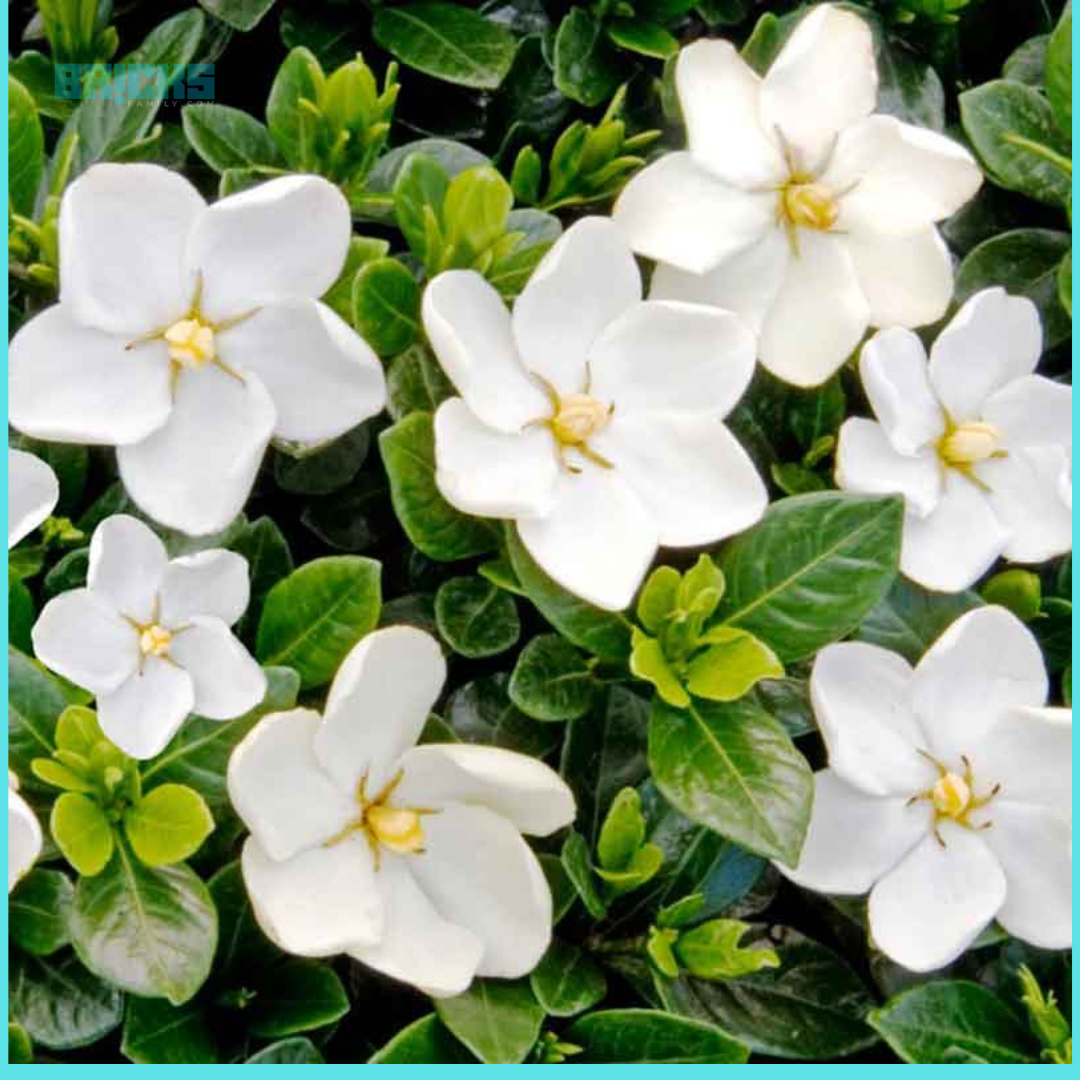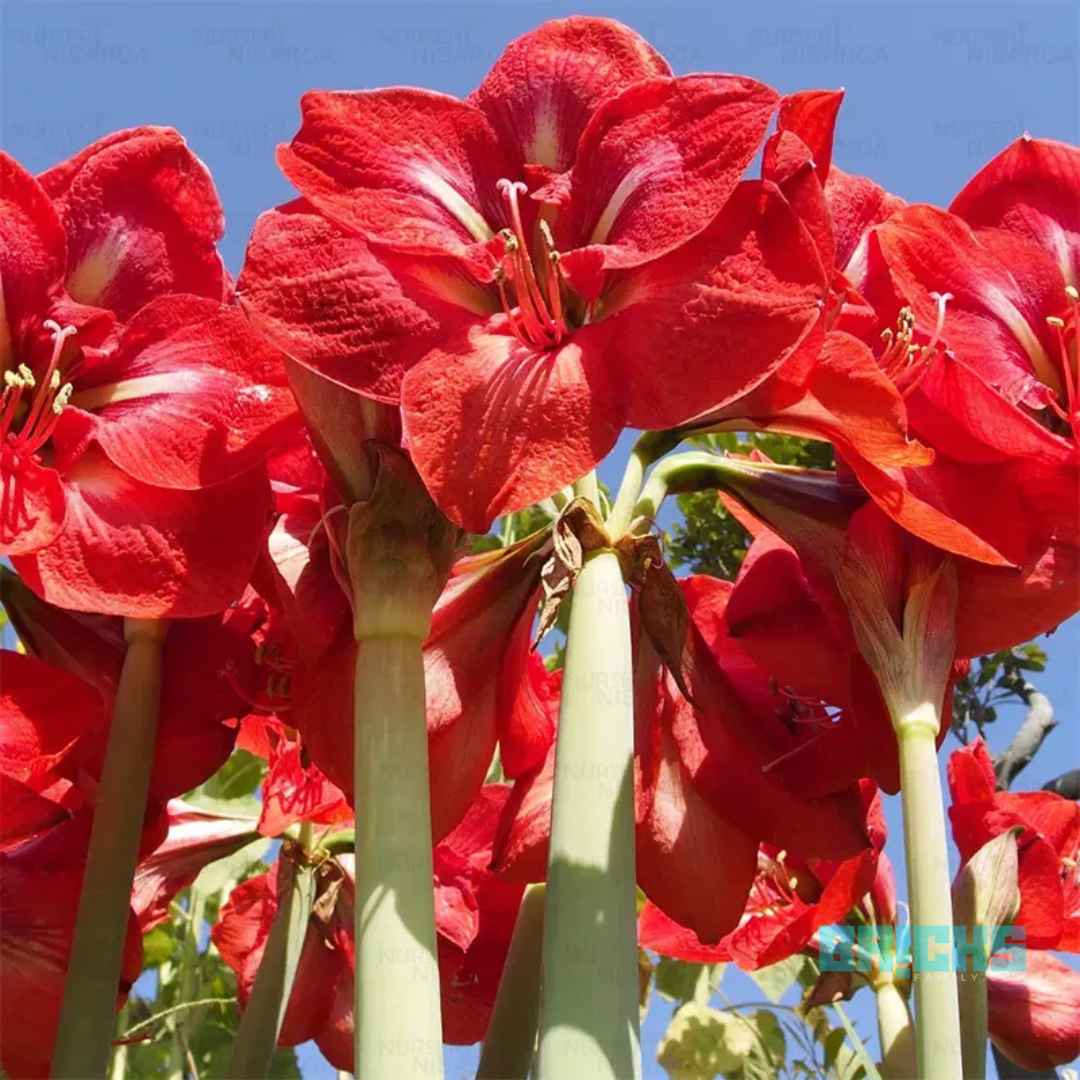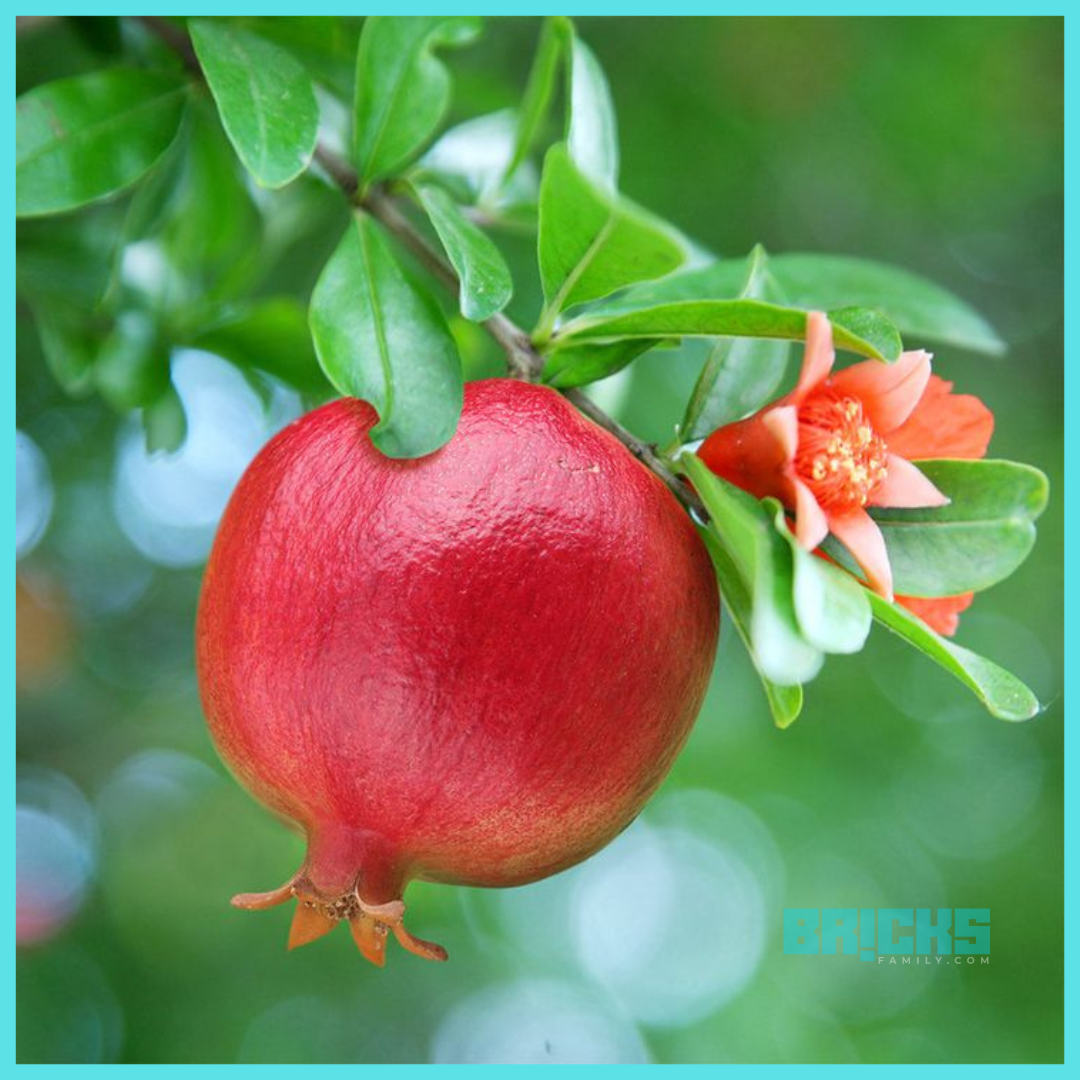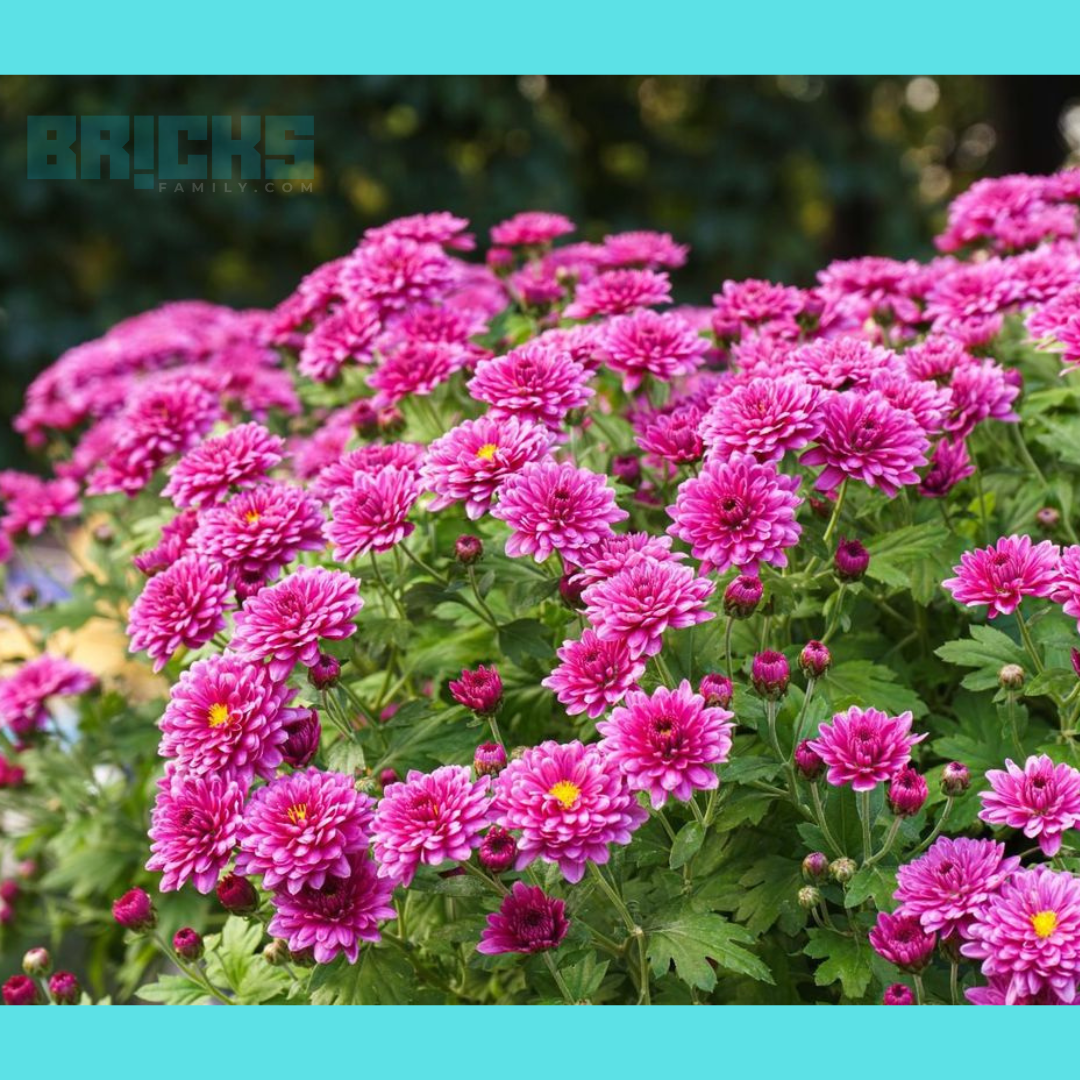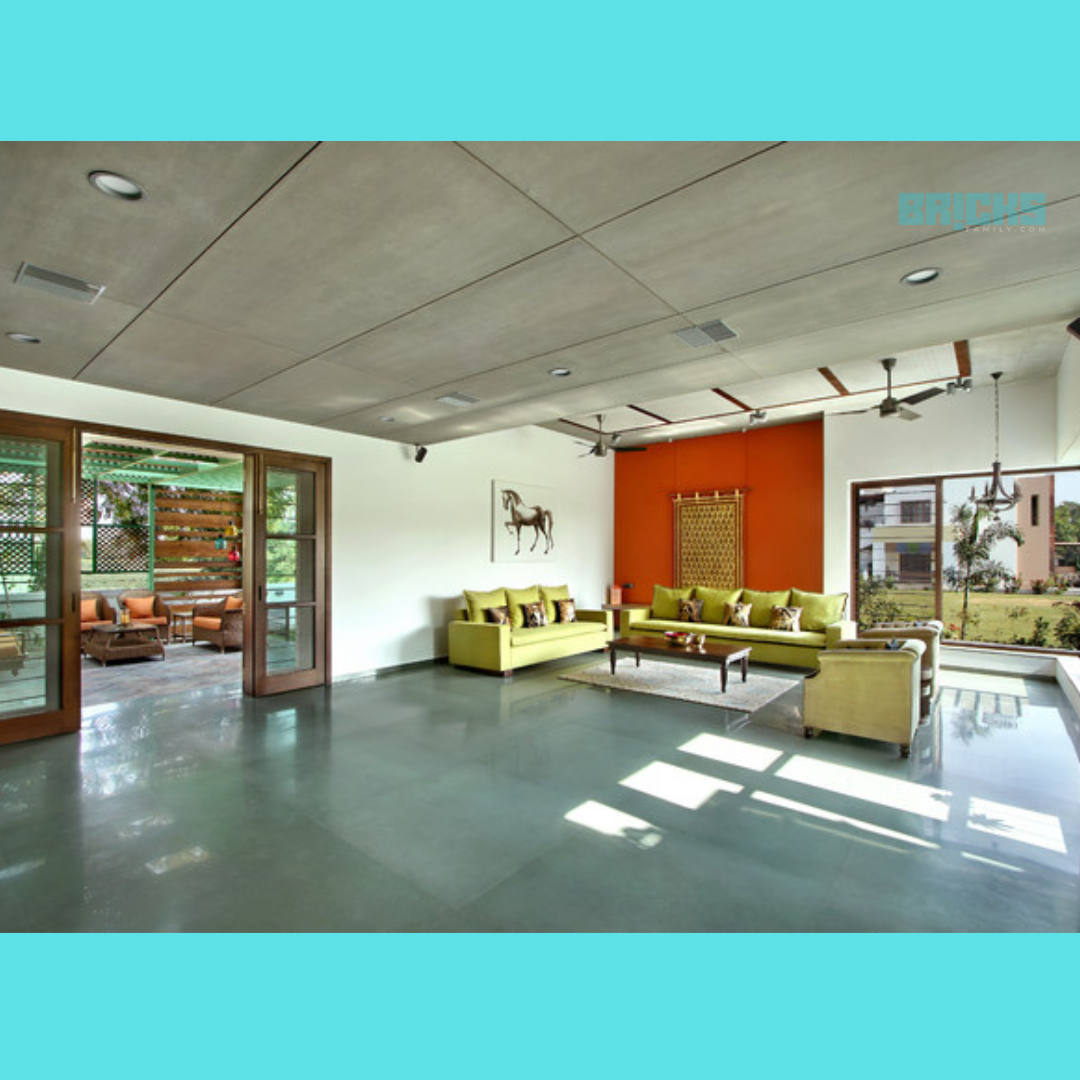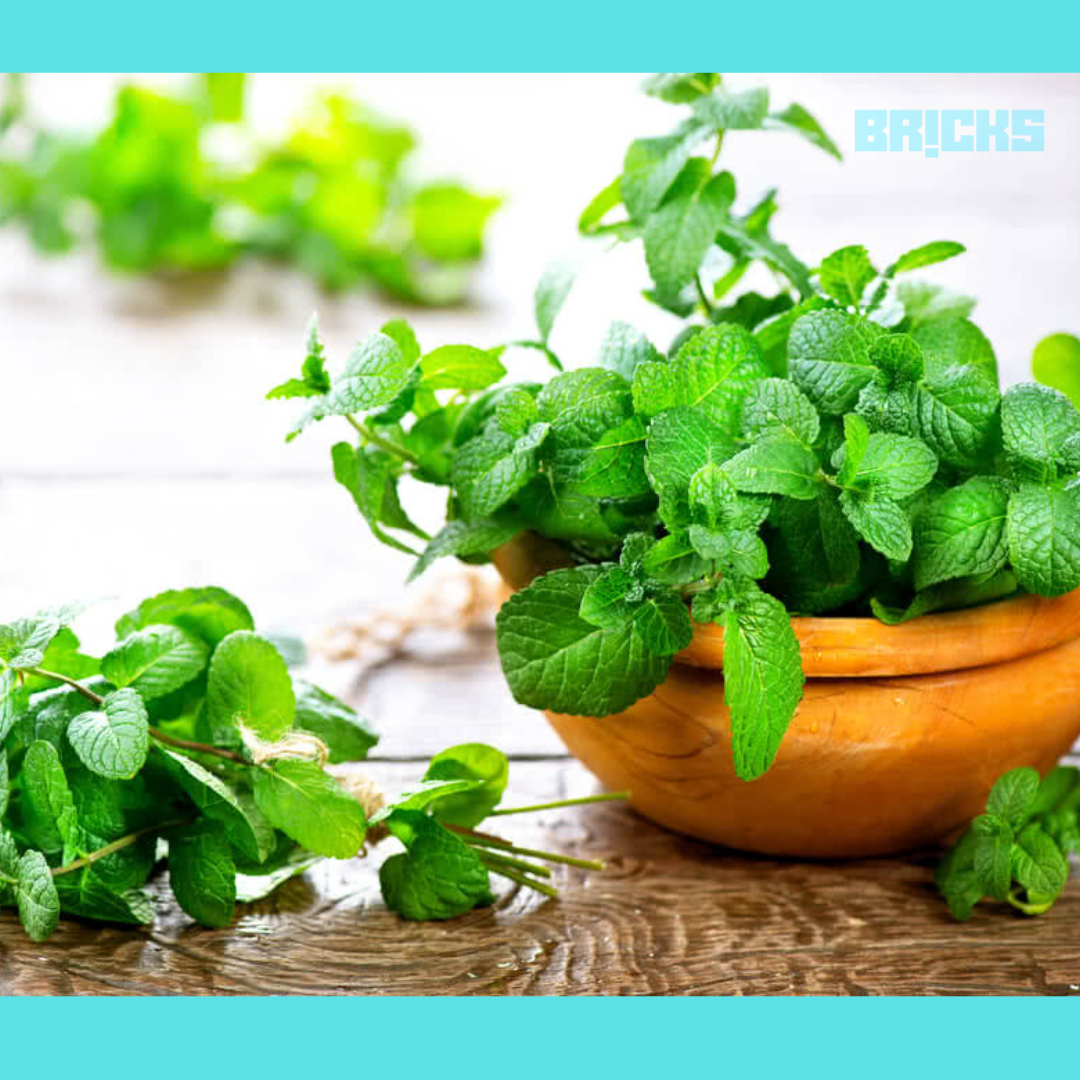Your home’s and office’s flooring has to be strong and adaptable. Indian Patent Stone flooring, commonly known as IPS flooring, is a dependable choice that provides strength and adaptability. It is a type of flooring made of concrete that is frequently used in homes and workplaces. We shall examine IPS flooring’s definition, setup, features, and upkeep. This blog will explains IPS Flooring – Meaning, Types, Advantages, Maintenance & More.
This flooring gives a seamless and level surface after installation, and the installation process is relatively easy. To fit the design of your home, you can select various hues and patterns. Your floor can be personalized to your preferences and given a distinctive appearance. IPS flooring, therefore, offers a flexible and durable choice for remodeling your house or building a new workplace space.
What is IPS Flooring?
Cement, sand, and stone aggregates create a strong, resilient IPS flooring system. For both home and business areas, it offers a durable surface. Indian Patent Stone Flooring is the full name of this type of flooring.
IPS flooring is distinguished by its exceptional durability. This flooring is perfect for places with considerable foot traffic because of its strong composition, which can withstand severe foot traffic. Its low maintenance needs make it a cost-effective flooring option because it does not require frequent repairs or replacements.
IPS Flooring Rate
India’s average IPS flooring cost can range from Rs. 60 to Rs. 80 per square foot. The cost is determined by several variables, including personnel costs, room size, the type of design needed, etc.
Composition and Properties of IPS Flooring
IPS flooring normally consists of cement mixed with sand, stone aggregates, and colour pigments. This flooring’s strength and durability come from the cement and aggregate mixture used to create it. It is an affordable choice that is simple to install. You spend less time and energy maintaining it, which saves you time. Your floor has remained in good shape for years thanks to its long-lasting qualities.
Types of IPS Flooring
Different types of IPS flooring are available to suit your needs and preferences. Here is IPS Flooring – Meaning, Types, Advantages, Maintenance, and More.
Plain IPS Flooring:
This sort of stone flooring is the most basic, with a straightforward and flat surface. It offers a strong foundation and is frequently utilized in commercial and industrial environments with strong flooring options.
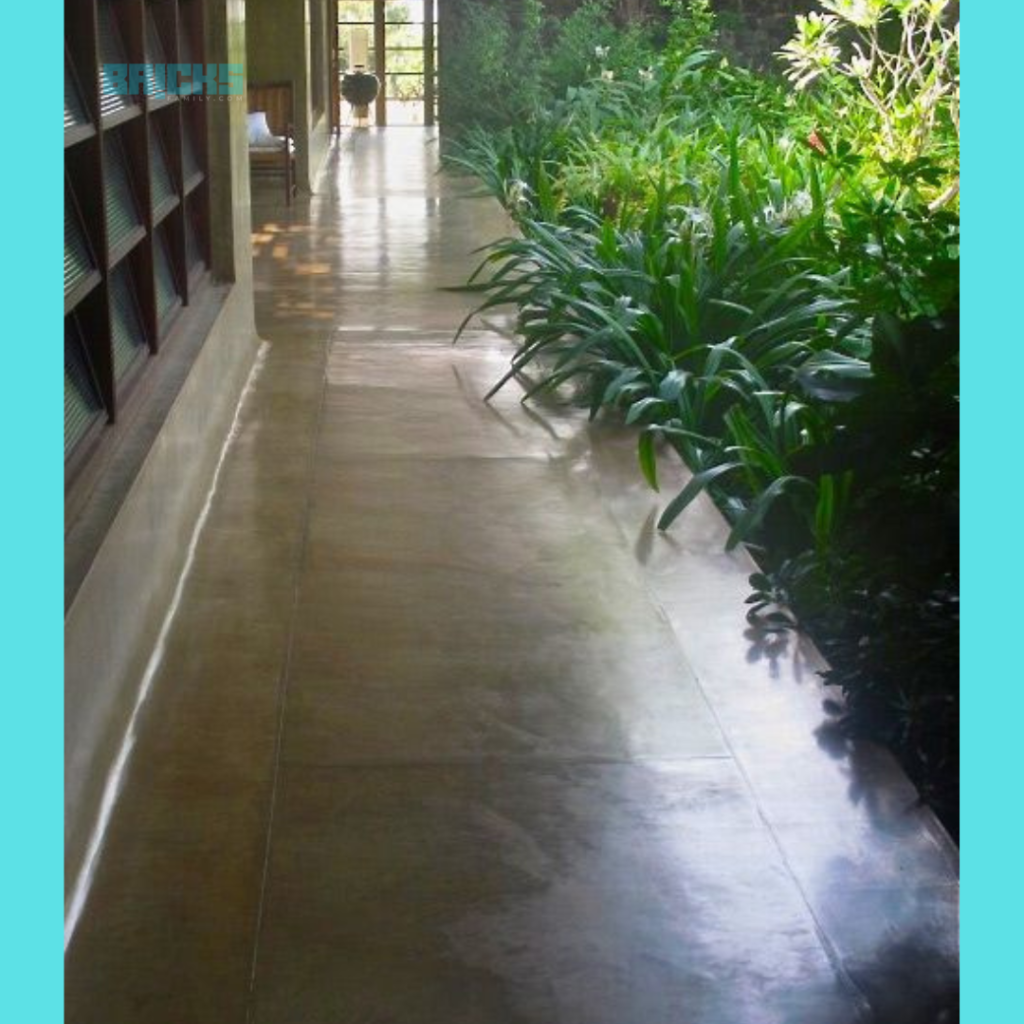
Coloured IPS Flooring:
Your floors will look more vibrant and personalized with this kind of flooring. When creating IPS flooring, you can combine pigments or dyes to create a variety of hues that complement your interior style.
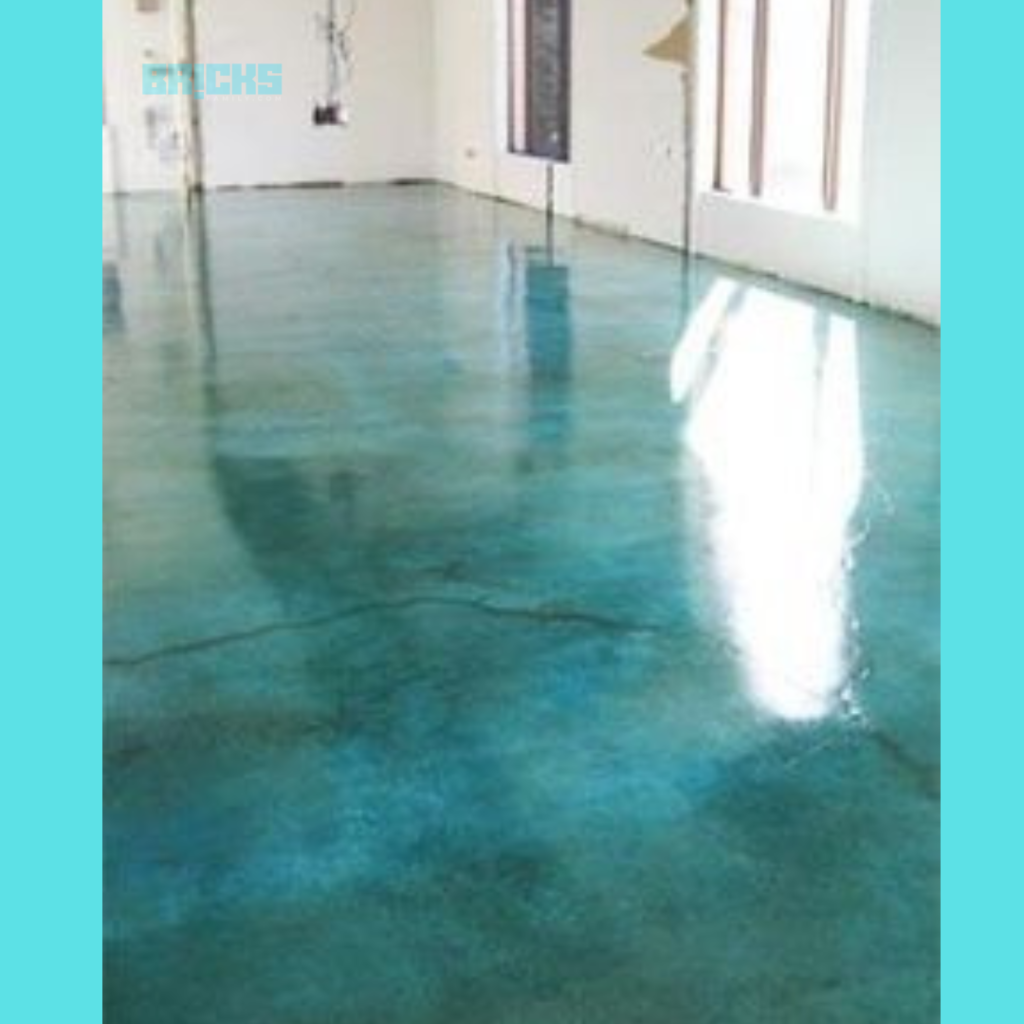
Decorative IPS Flooring:
You can design distinctive and eye-catching floor patterns with decorative IPS flooring. Detailed, textured designs can be added to this flooring using chips, aggregates, or stencils. Additionally, you can make different patterns, like floral or geometric motifs. You have the flexibility to express your creativity and give life to your ideas thanks to this flooring.
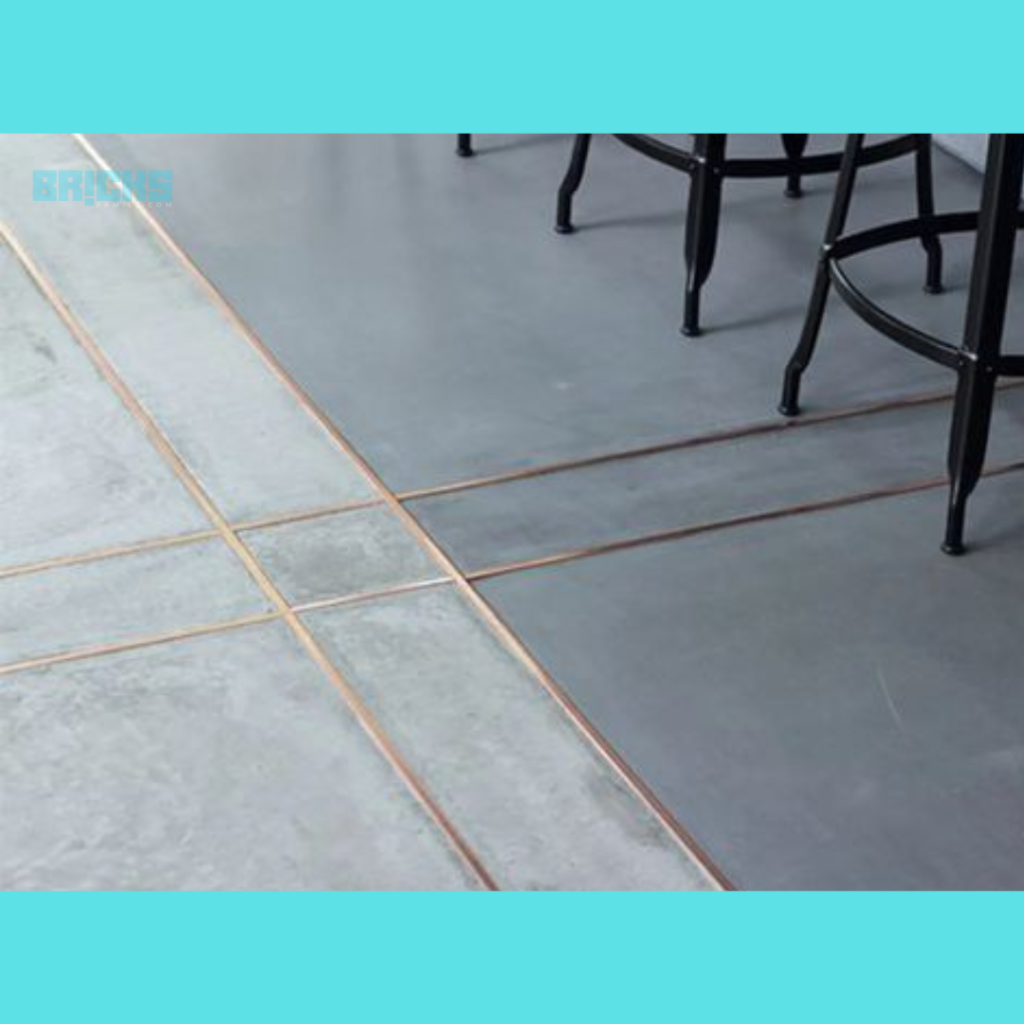
Polished IPS Flooring:
IPS flooring that has been polished has a shiny, reflective appearance. It entails grinding and polishing to improve its visual appeal and smooth surface appearance. Showrooms, hotels, and posh homes frequently choose this kind of flooring.
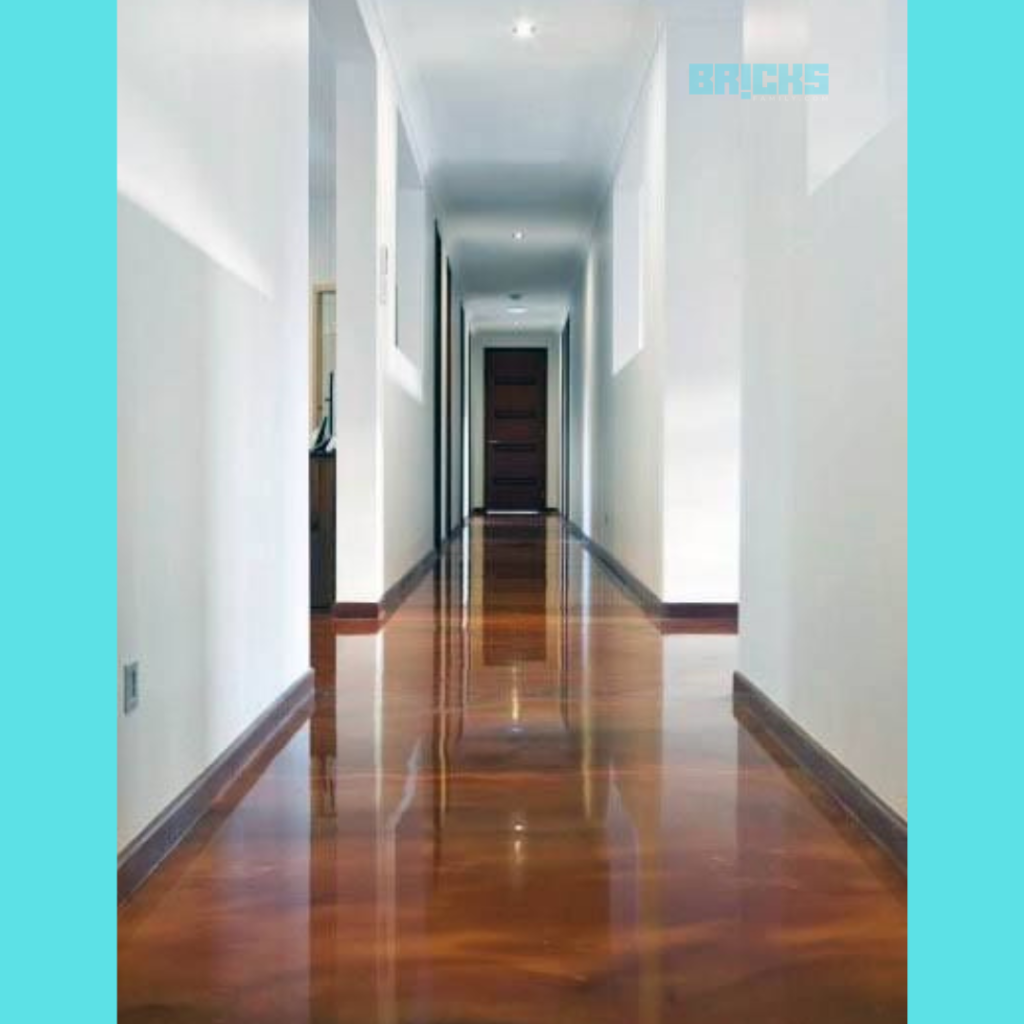
Stained IPS Flooring:
The surface of stained IPS flooring is stained chemically, giving it a marbling or mottled appearance. Both commercial and residential areas favor this method because it gives flooring character and depth.
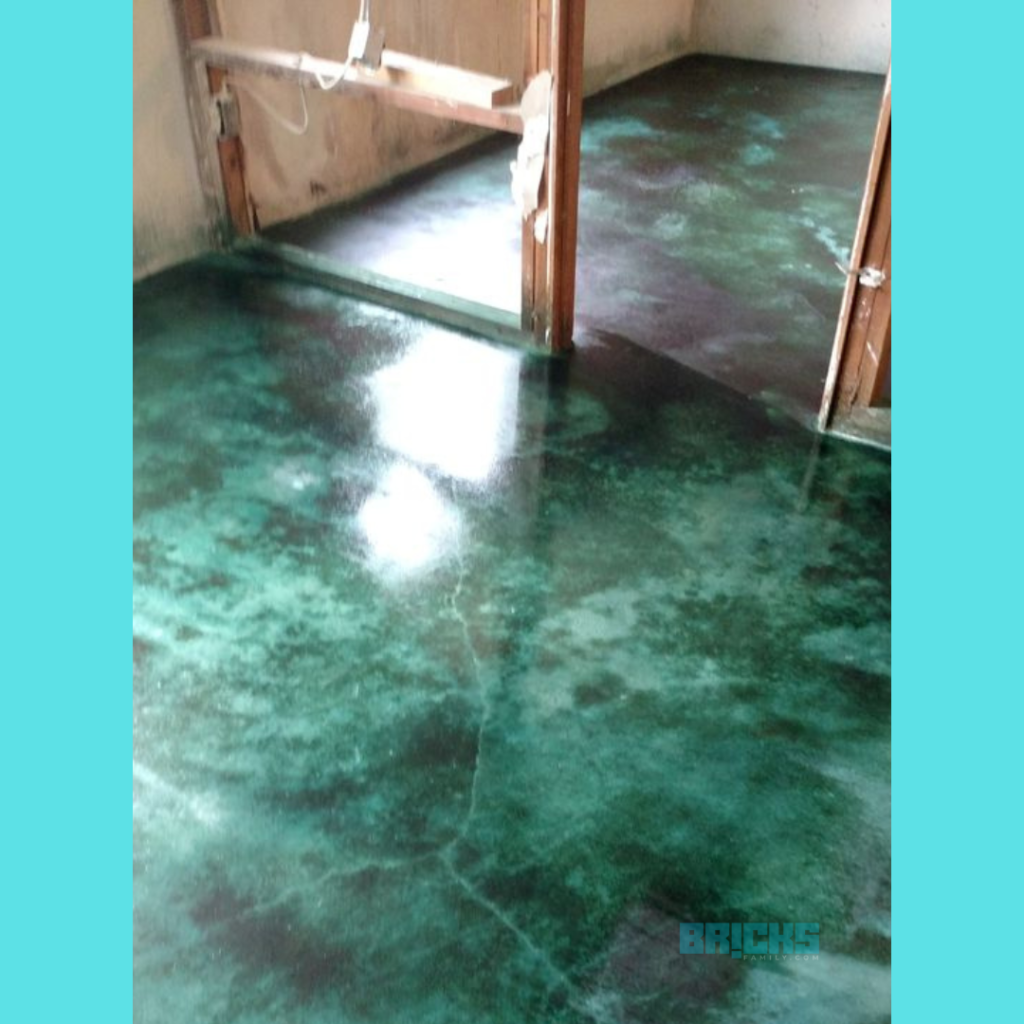
Thickness Of IPS Flooring
Where you intend to place the flooring will determine how thick it is. The projected load-bearing capacity and intended use of the flooring must be considered. The thickness of the flooring ranges from 20 mm to 75 mm. The typical thickness for residential buildings is 25 mm, while for industrial buildings, it is 75 mm. IPS Flooring – Meaning, Types, Advantages, Maintenance, and More
Advantages of IPS Flooring
Durability: IPS flooring is excellent for heavily utilized areas since it is extremely durable and can tolerate significant foot traffic.
Simple Upkeep: This flooring is simple to keep clean and in good condition. It can look clean and fresh with routine sweeping and mopping.
Versatility: This flooring has various patterns, colors, and designs. Consequently, you can pick a look that complements your aesthetic tastes.
Cost-Effective: IPS flooring is a budget-friendly choice compared to other flooring options. It offered a fair compromise between price and toughness.
Customization: Customization is possible with IPS flooring to meet your unique needs. You can use tailoring to make original patterns and designs.
Resistance to Moisture: IPS flooring is water and moisture-resistant, making it perfect for locations that frequently experience spills or humidity.
Longevity: This flooring can last for many years with appropriate installation and upkeep, giving you a great return on your investment.
Eco-Friendly: Indian Patent Stone flooring can be recycled and does not create environmental harm, making it a green option.
Installation Process of IPS Flooring
The flooring installation is easy and may be completed in a day or two.
Surface preparation: To ensure a flat surface before laying the flooring, the surface is cleaned, leveled, and prepped. Additionally, any cracks or unevenness are fixed.
Making the Mortar: Cement, sand, and water are combined to make a specific mortar mixture. It should have a spreadable consistency that could be more runny.
Application of Mortar: Using a trowel, the mortar mixture is placed uniformly on the surface that has been previously prepared. It is applied in a thin layer to guarantee total coverage.
Troweling and Smoothing: A steel trowel is used to trowel and smooth the mortar. This aids in creating a surface that is level and even.
Curing: The freshly laid flooring mixture is given a set amount of time to cure, often 24 to 48 hours. This enables the mortar to strengthen and harden.
Finishing: The surface is polished using a power trowel or grinding machine after the curing phase to obtain the desired smoothness and finish.
Cleaning and sealing: After the surface has dried completely, we thoroughly clean it to remove any remaining dust or grime. A sealer or floor polish can be used to improve the flooring’s appearance and protect it.
Benefits of IPS Flooring
The advantages of IPS flooring are numerous and include:
Durability: IPS flooring is durable and suitable for high foot traffic locations, including commercial spaces, public buildings, and corridors, since it can handle heavy foot traffic.
Easy upkeep: This flooring has several important benefits, including its simplicity in upkeep. Just regularly cleaning and mopping will keep things clean. This flooring’s smooth surface prevents filth from adhering. This lowers the need for extensive maintenance and makes cleaning simple.
Cost-Effectiveness: Compared to other flooring options, IPS flooring is more cost-effective. It is inexpensive and ideal for homeowners and companies on a tight budget. For a reasonable price, you can achieve a polished and chic appearance.
Customization: Customization is possible with IPS flooring, following your preferences and sense of style. It is offered in various hues, textures, and finishes, so you may choose a style that complements your decor. This flooring can be customized to your preferences, whether you choose a traditional or modern appearance.
Environmentally responsible: Because IPS flooring uses natural resources, it is an environmentally responsible alternative. Sand, stone aggregates, cement, and other organic materials are used to make it. This flooring is environmentally friendly because it guarantees a low environmental impact during production and removal.
Versatility in various areas: IPS flooring is a great choice for various areas. They can be placed in residential dwellings, workplaces, retail establishments, educational facilities, and industrial zones. Because of its adaptability, it is a sensible option for various settings.
Maintenance and Care for IPS Flooring
Your flooring must be maintained and cared for to maintain its good shape. To do so, adhere to these easy steps:
Regular Cleaning Procedures: Regular sweeping or vacuuming is advised to keep this flooring clean by removing dirt and debris. To keep the surface clean, you can mop it occasionally with a mild detergent solution.
Techniques for Removing Stains: Taking immediate action against difficult stains is crucial. Stains can be successfully removed without harming the flooring using a mild cleaning agent or a dedicated stain remover made for this material.
Guidelines for Sealing and Resealing: Applying a suitable sealer to IPS floors is recommended to extend their lifespan and protect them from moisture or stains. Regular resealing helps preserve the flooring’s integrity and ensures its endurance over time.
Cracks and Damages: If any cracks or damages develop, the IPS flooring should be immediately repaired. When IPS floor issues are serious, expert assistance is required.
Where to install IPS Flooring
Residential Spaces with IPS Flooring: The Indian Patent Stone flooring is a wise choice for areas of the home with a lot of traffic, such as living rooms, corridors, and entryways. Families with children and pets will appreciate how long it lasts and how easy it is to maintain.
IPS Flooring at Commercial Establishments: Because it is durable and reasonably priced, IPS flooring is an excellent option for offices, stores, and restaurants. Additionally, it can sustain heavy use without breaking. It is simple to clean and can tolerate high foot traffic.
IPS Flooring in Industrial Settings: IPS floor offers a dependable flooring option in industrial settings where toughness and resistance to heavy machinery and chemical spills are essential. Because of its durability, it is a good fit for workshops, manufacturing facilities, and warehouses.
Conclusion to IPS Flooring
The IPS floor provides a strong and useful flooring option for various residential, commercial, and industrial areas. It is a well-liked option due to its durability, affordability, and strength. Enjoy the advantages of this dependable, durable, and low-maintenance flooring option. You can extend its lifespan by adhering to proper installation and maintenance instructions. The best results will come from doing this. Conclusively it gives brief about IPS Flooring – Meaning, Types, Advantages, Maintenance & More.
Also Read: Guest Room Vastu Principles To Remove Negative Energy and Invite Positivity
Similar Topics: The Different Types of Houses in India with Pictures

